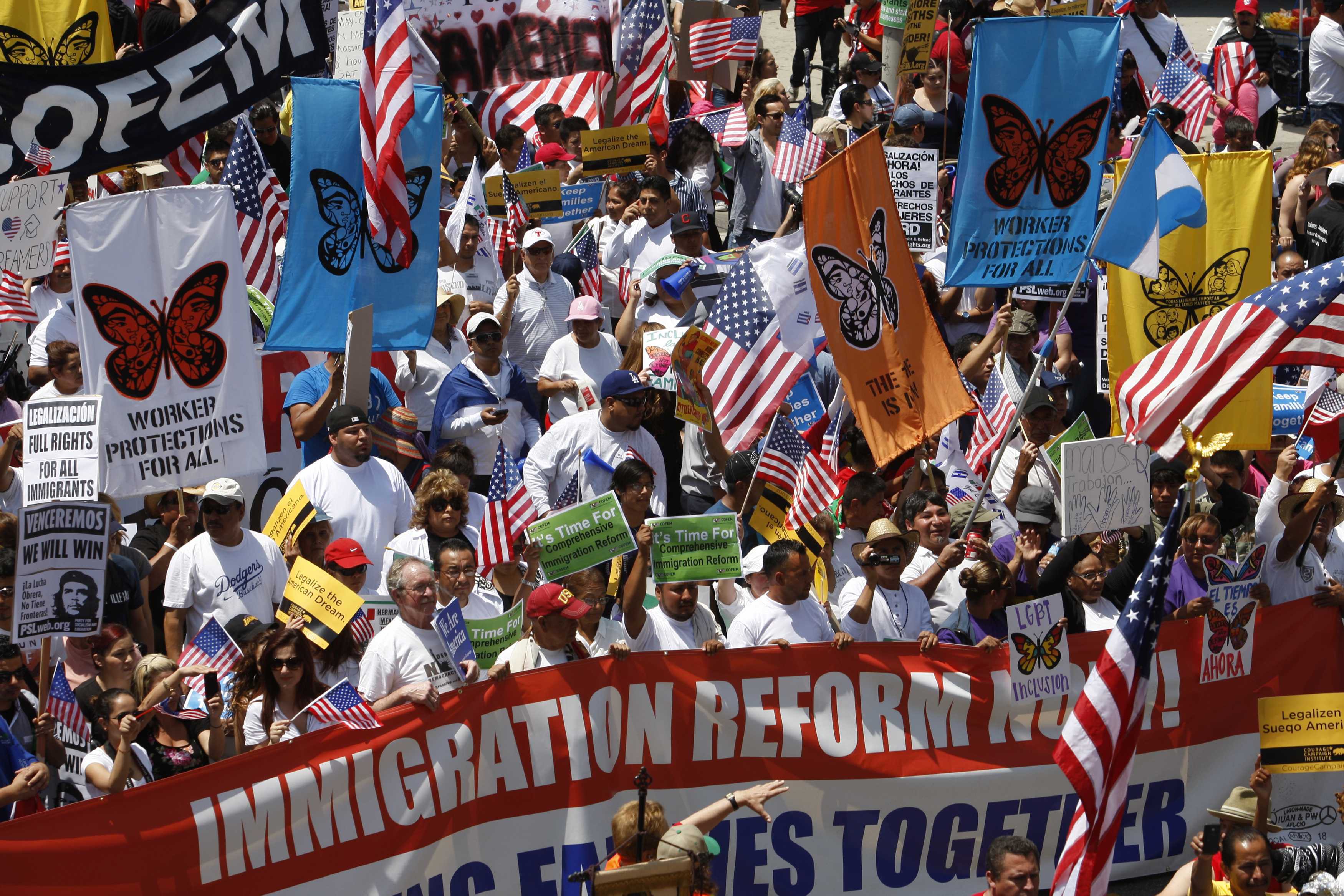
WASHINGTON – The growing Hispanic population in the United States will redefine future relations between this country and the rest of the Americas, especially Mexico, according to a report published Monday by the Center for American Progress.
“The Latino community is becoming increasingly important to the economy, culture, and politics of the United States,” says the study prepared by CAP, a liberal think-tank based in Washington.
So much so, that “these developments will have profound implications for the United States, Mexico, and the rest of the Americas” over the next two decades, the report says, in which Mexico’s Economic Research and Education Center also took part.
According to the document, more than 55 million people, or 18 percent of the U.S. population, are Hispanics, and around two-thirds of those Latinos came from Mexico.
Puerto Ricans are a distant second, representing 9 percent of the Latino population, followed by Salvadorans and Cubans, both at 4 percent, and Dominicans with 3 percent.
Far from leveling off, the number of Hispanics will continue to climb over the coming years in the United States and is expected to top 100 million sometime during the next 30 to 40 years.
Their “increasing demographic weight,” according to the report, occurs in line with the growing economic strength of Hispanics, who, if they constituted a country, would be one of the world’s leading economies in terms of purchasing power, valued at some $1.2 trillion according to current estimates.
At the same time, population growth contributes to “the rising political influence of Latinos in the United States: More than 11 million Latinos voted in 2012,” with the great majority casting their ballots for Democratic incumbent Barack Obama, who won a second term in office.
As if that weren’t enough, some 40 million Latinos are expected to be eligible to vote by 2030.
“As Latinos assume greater political power within the United States,” the analysis says, “the U.S. relationship with the rest of the Americas will become an increasingly important issue in U.S. domestic politics.”
“With the exception of Spain,” it says, “countries of Latino origin and heritage have only recently begun to understand the potential of tapping into U.S. Hispanics as a way of bolstering bilateral relations with the United States.”
According to experts, countries of the Americas, including the U.S., should realize that a strong U.S. Hispanic identity and loyalty to the United States can comfortably coexist with strong ties to the countries of origin.
That phenomenon has a special significance in U.S. relations with its neighbor to the south, Mexico, given the enormous weight of Mexicans in the Hispanic population of the United States.
Not long ago, the report says, the Mexican government, through organizations like the Institute of Mexicans Abroad, “engaged with Mexicans in the United States strictly as Mexicans and not as Mexican Americans, ignoring an important dimension of their self-perception.”



Expositores: Oscar Vidarte (PUCP) Fernando González Vigil (Universidad del Pacífico) Inscripciones aquí. Leer más
Una retrospectiva para entender los próximos cuatro años. Leer más
En la conferencia se hará una presentación de los temas más relevantes del proceso de negociación se llevó a cabo desde el 2012, así como del acuerdo de paz firmado entre el Gobierno colombiano y la guerrilla de las FARC a finales del 2016. Se analizarán los desafíos y las... Leer más
El Observatorio de las Relaciones Peruano-Norteamericanas (ORPN) de la Universidad del Pacífico es un programa encargado de analizar y difundir información relevante sobre la situación política, económica y social de Estados Unidos y analizar, desde una perspectiva multidisciplinaria, su efecto en las relaciones bilaterales con el Perú.
© 2026 Universidad del Pacífico - Departamento Académico de Humanidades. Todos los derechos reservados.

